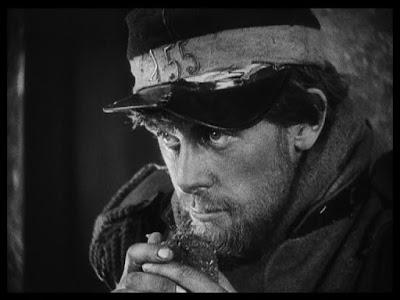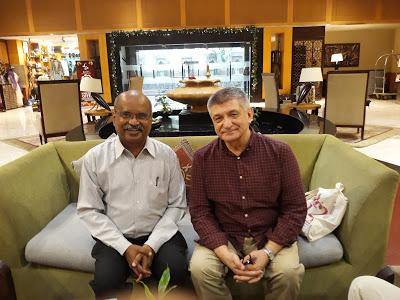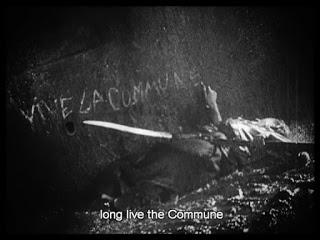Background note on Russian filmmakers Sokurov and Kozintsev
Russian film director Aleksandr Sokurov (66) is famous for diverse reasons. Some recall his experimental feature film Russian Ark (2002) filmed in a single, unedited 90-minute shot with over 2000 actors in elaborate costumes and 3 live orchestras exploring several sections of the Hermitage museum in Saint Petersburg (Leningrad). Some recall his more recent feature film Faust (2011), honoured with the Golden Lion at the Venice Film Festival. The late film critic Susan Sontag, while including two Sokurov feature films among her 10 favorite films of the 1990s, stated “There is no director active today whose films I admire so much.” Musician Nick Cave, in an interview published in the British newspaper “The Independent,” revealed “I wept and wept from start to finish” on viewing Sokurov’s Mother and Son (1997), a poetic experimental feature film with minimal spoken lines.
In 1998, Sokurov made a documentary called Saint Petersburg Diary: Kozintsev’s Flat. It is indeed rare that a famous filmmaker makes a film on another filmmaker’s lodgings. Russian film maestro Grigori Kozintsev’s (1905-73) directorial career spanned both the silent and the sound era of film. Kozintsev is renowned for his two black-and-white Shakespeare films Hamlet (1964) and King Lear (1971)--his last films--made in collaboration with friend and composer Dimitri Shostakovich and Nobel Prize winning novelist Boris Pasternak. The silent 1929 Kozintsev film, The New Babylon, co-directed by Leonid Trauberg, had Soviet film directors Vsevolod Pudovkin and Sergei Gerasimov as actors, and composer Shostakovich providing music. The film and the intended music for the silent film ran into problems with the Soviet censors who demanded over 20% cuts before its domestic release, as the film was an obvious avant garde, anti-war film. A slightly longer version was released in 1983 in Russia without Shostakovich’s music. However, the restored “original length” version became available in 2010, long after the filmmakers and the composer had died. This was because a nitrate print of the film’s uncut length was found intact with Cinematheque Suisse (Switzerland) to which the Shostakovich’s music was finally added as originally intended. (Shostakovich had apparently refused to add his music to the earlier truncated versions of the film approved by the censors.)

The neglected and hungry soldier in Kozintsev's The New Babylon (1929)

Cordelia and Lear interact towards the end of Kozintsev's King Lear (1971)
Subsequent to his travails with The New Babylon, Kozintsev made his Maxim trilogy during Stalin’s regime. The police commissioner of Detroit, Michigan, USA acting as censor, banned Kozintsev's Youth of Maxim (1935)—the first part of the Maxim trilogy--in the Thirties as being "pure Soviet propaganda and likely to instil class hatred of the existing government and social order of the United States." That ban was short-lived.
The Sokurov interview with Jugu Abraham, author of the blog Movies that Make You Think, Dec 2017
Sokurov was not merely an admirer of Kozintsev but equally of the later film maestro Andrei Tarkovsky. Intriguingly, Tarkovsky never discussed Kozintsev in his writings on filmmaking. Indian film critic Jugu Abraham interviewed Sokurov with the aid of an interpreter in Trivandrum, India, where Sokurov was being honoured in December 2017 with a Lifetime Achievement Award at the International Film Festival of Kerala. The resulting interview revealed a lot about Kozintsev, Sokurov and Tarkovsky, three major filmmakers, active in different decades of Russian film history, with unusual linkages.
Alexandr Sokurov (right) with Jugu Abraham,
after the interview (December 2017)
The interview:
Q. I was intrigued that you made a documentary film on director Grigori Kozintsev’s flat. What made you pick up the subject?Was it your interest in Kozintsev as a filmmaker? Did he have an influence on you? Did you like his way of filmmaking?
A. I was much, much younger than Kozintsev, so I never met him. But I was a very good friend of his widow. I visited her house many times.When I used to visit her there, often there were routine problems in the flat like repairing a leaking pipe and I would help her with the repairs. So we had a very good heart-warming relationship. For the most part, all the Soviet directors liked Kozintsev because he was a truly honest person. He would never betray anyone. He was a moral authority for Soviet filmmakers. Kozintsev was the only person who truly defended Andrei Tarkovsky when he was under fire from the Soviet Government. Kozintsev’s film adaptations of Shakespeare were outstanding. Nobody in the world ever made films that way. Q.You knew Andrei Tarkovsky very well. I noted that Tarkovsky never mentions Kozintsev in his extensive writings on cinema. Do you know why?
A. That is too bad that Andrei forgot to mention this great director in his writings, a man who was always helping him. It happens with many great filmmakers. They forget to mention the most important person who helped them. It is very bad, that’s too bad.
Q. Did Kozintsev’s filmmaking influence you?
A. I can’t say he influenced me directly because he had his own style and I have my own style. But everyone appreciated his level of professionalism. There were many directors in the world at that level at that time. What is important is that Kozintsev was able to adapt western and historical concepts in Soviet cinema, and in that sense, outstanding.Unfortunately, he was in so many ways controlled by Soviet censors. It was a big obstacle for him and this prevented him from creating many films he wanted to make.
Q. Do you have any opinions about Kozintsev’s directorial partner on his early silent films, Leonid Trauberg?
A. Kozintsev worked with Trauberg when he was very young. For me, Kozintsev’s best films were made when he worked alone, when he was older. With Trauberg, we can only connect with the beginnings of his career. Kozintsev’s collaboration with Trauberg speaks a lot about the director; that he was able to cooperate with and be in continuous dialog with another important director, film after film. Not many directors are able to do that.
Q. Just like Kozintsev, you have taken a lot of interest in literature and in photography. Do you see that as a commonality?
A. The difference is that Kozintsev’s interest in literature and photography was evident towards the end of his life, while for me literature and photography was important from the very beginning. Kozintsev started as a revolutionary. He believed in radical art connected with socialism. This affected his earlier career. When he got rid of his childish diseases, he started to think differently.
Q. He is the only Soviet director who had his films banned briefly both in Soviet Russia and in USA ...
A. No, his films were not banned in Soviet Russia.. I don’t know about USA.
Q. I am referring to his silent film The New Babylon (1929).
A. Ah, yes. But that film was allowed to be shown later. Kozintsev was always among the top five Soviet directors like Eisenstein, Pudovkin and others. He was always considered as a classic director during his life-time. As film students, we all knew about this great director who lived in Leningrad (St. Petersburg). He had a good salary and quite a big apartment. He was never forgotten.
Q.You had once stated that cinema cannot achieve what a novel or a painting can achieve. Could you elaborate?
A. Cinema is too concerned, too worried about showing everything, every detail. Unlike literature where there is an element of absence of the author in the work, everything is never totally said; there is always a mystery until the very, very end. In cinema, even though we try to present details, we are never able to show a person in the way a writer can.
(Though Sokurov would have been happy to answer more questions, his accompanying Russian managers insisted he had other commitments. For those interested, the restored uncut 2010 version of Kozintsev’s The New Babylon is available free to view on "Youtube.")

The unforgettable sequence from the restored
version of Kozintsev's The New Babylon (1929)
P.S. The author's in-depth reviews of Kozintsev's King Lear (1971) and The New Babylon (1929), Tarkovsky's Solaris (1972) and Mirror (1975), and Sokurov's Faust (2011) were posted on this blog earlier.. (Click on the name of the film in this postscript to access the specific review.)

